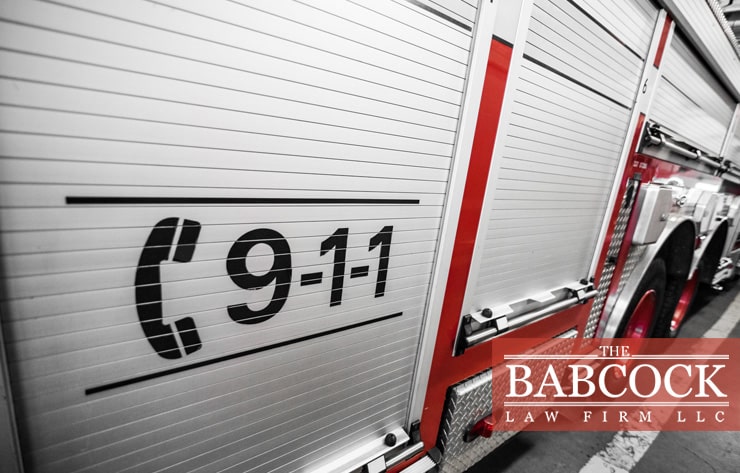
Until Colorado Senate Bill SB20-026 was signed into law in June 2020, 911 operators were left out of special protections for post-traumatic stress disorder (PTSD), which made pursuing workers’ comp benefits for PTSD very difficult. This new law brings them under the same special protections as other first responders with PTSD from witnessing horrific accidents, fires and crime scenes at work.
Thanks to the 2020 bill, 911 operators, who are daily exposed to “audible psychological trauma” from the calls they take, are eligible for workers’ compensation if they develop PTSD as a result of their job. In fact, SB20-026 of the “Workers’ Compensation for Audible Psychological Trauma” bill provides protection for all workers who are a witness to both visual and auditory trauma.
SB20-026 specifically states that workers’ comp benefits are extended after a “worker’s visual or audible exposure to the serious bodily injury or death, or the immediate aftermath of the serious bodily injury or death, of one or more people as the result of a violent event, the intentional act of another person, or an accident is a psychologically traumatic event for the purposes of determining the worker’s eligibility for workers’ compensation benefits.”
According to Senator Rhonda Fields, one of the bill’s primary sponsors, “Emergency operators are our first line of support when a horrific event occurs.”
Furthermore, since these workers are required to listen to often horrific audio while keeping a level head to dispatch emergency personnel, the community at large should stand up for them and ensure they’re taken care of when needed.
While PTSD can be a serious condition, there are ways to manage the condition. The first step is identifying the physical symptoms associated with the trauma. Many symptoms aren’t obvious; however, they can include the following:
- Lowered immune response
- Exhaustion
- Impaired decision-making ability
- Increase in the use of alcohol, drugs or carbohydrates
- Increase in anger and irritability
- Insomnia
For these reasons, it is important that first responders, including 911 dispatchers, take the time to take care of themselves and practice self-care to manage stress levels as a part of their healthy living routine.
Self-care management can include practicing the following:
- Exercise and education
- Practicing sensible eating
- Rest and relaxation
- Satisfying expression of self and spirituality
- Seeking the social support of family, colleagues and friends
- Taking time to enjoy life
Reporting a work-related injury
Getting injured is an unfortunate risk that all workers experience. But if something happens during your employment, there are certain steps you need to follow.
Even though 911 operators are now protected by workers’ compensation legislation for PTSD, workers in other occupations still have higher hurdles to overcome because they’re not covered by the special protections afforded to first responders and now 911 operators.
At The Babcock Law Firm, we are dedicated to protecting the rights of workers. And we will continue to fight to ensure that injured workers are protected under workers’ compensation. Rest assured, you can trust us to be your strong advocate in your time of need.
Contact us today for your free consultation.


